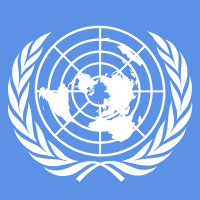Sweden: Transgender actress mourns her “forcible sterilization” – “Many countries typically seen as progressive on LGBT rights continue to mandate the practice.”
“’Forcible sterilization’ has been quietly practiced for decades in countries typically cast as progressive on LGBT rights: France, the Netherlands, Australia and a number of U.S. states still require it. Italy and Germany have just recently overturned similar legislation.”

Having just returned from Creating Change (3000 Lesbian, Gay, Bisexual, and Transgender activists and allies, annually), I found this coverage of actress Aleksa Lundberg, a well-known Swedish transwoman, particularly ridiculous.
Although Swedish actress Aleksa Lundberg made her complete transition in her late teens, before her career, her birth gender just entered the public’s consciousness 4 years ago when she started telling her story to the press and on stage to take a stand against efforts to block the repeal of this heinous law.
Transwomen in Sweden cannot obtain their desired gender documentation (the completion and certification of their transition in the governments eyes) unless they undergo a full surgical removal of all male sex organs, while being prohibited from pre-freezing sperm for future use. These forced surgeries are a clear violation of human rights, something 50 Swedish transwomen, in a population of only 9 million, needlessly suffer every year.

This practice unfortunately harkens back to Sweden’s questionable medical research experiments on humans that didn’t officially end until the early 70s, as pointed out by Par Wiktorsson, president of the organizing committee for this year’s Stockholm Pride Festival.
“. . . the current law is reminiscent of eugenics programs that Swedish academics and doctors began to pursue in the 1930s and actually continued to practice until 1976.
“Supporters of the law don’t want the sterilization referred to as ‘forcible,’ but they didn’t want to call it that in the past either,” he says. “But . . . the state has always stood behind this demand with the threat of [withholding medical] treatment. It is shameful that we have forcible sterilization in the year 2011.”.
“Forcible sterilization” has been a practice for a century in America, notably in the southern states. Women and men, trans or not, are rightly seeking compensation as highlighted recently in North Carolina, where an intrusive state government shattered life aspirations of 1000s who were forced to undergo this despicable practice, by force and/or without informed consent. In the 60s, just being an unmarried teen mother was justification for sterilization.
‘They cut me open like I was a hog,” testified Eliane Riddick, who was sterilized by North Carolina at age 14 under the premise that she was promiscuous and didn’t get along with others. “I couldn’t get along well with others because I was hungry. I was cold. I was a victim of rape.”
This is a practice that is disturbing especially to human rights defenders in this 21st century. I know that centuries ago, people didn’t have many choices in regard to rights and the governments were left largely unchecked. England exiled its own citizens, those deemed undesirable by the state, to primitive and barren lands 1000s of miles away. This business of creating a perfect world in places through erasure has been going on for a long time but civilization cannot stop banning practices like forced sterilization and others forms of disenfranchisement or it will stay in this modern dark ages.
“It infuriates me that a group of people think they have a right to tell another group of people what they can and cannot do,” Lundberg says.
As a human rights activist, I say, They don’t!”
It’s high time every lover of liberty and equality is coming together to denounce such heinous acts and continue to CREATE CHANGE.





